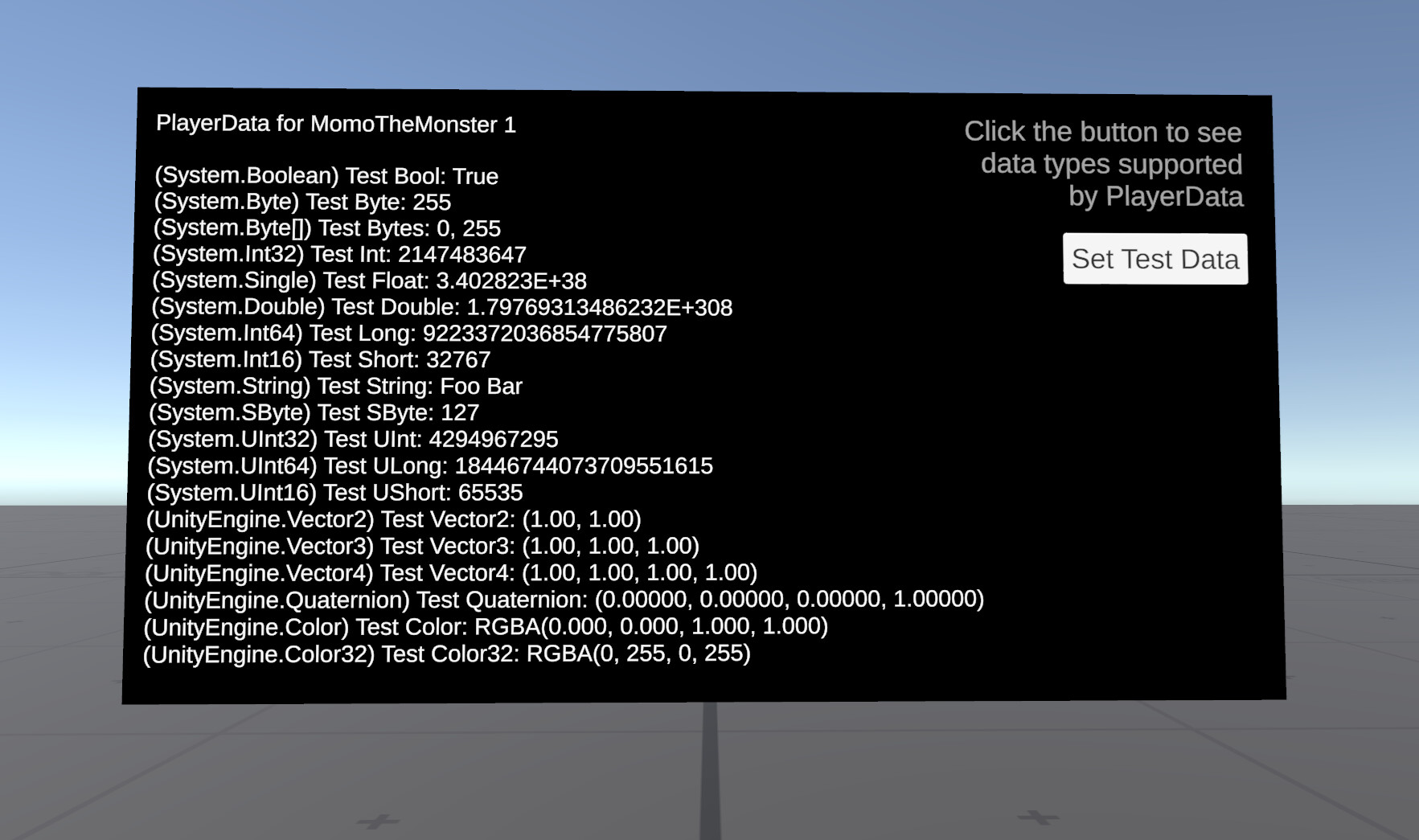Player Data Types

A barebones examples that demonstrates data types supported by the PlayerData interface.
Visit the Player Data Types Example World to try it for yourself!
Supported data types include:
- bool
- byte
- byte[]
- int
- float
- double
- long
- short
- string
- sbyte
- uint
- ulong
- ushort
- Vector2
- Vector3
- Vector4
- Quaternion
- Color
- Color32
Using the Example
In Client:
- Enter the world
- Click button “Set Test Data”
- Observe the display updating with the test data
In Editor:
- Open the
VRChat SDK > ClientSim Player Dataeditor window - Observe the test data update here, as well, as you press the button in Play Mode
- You can clear and re-set the test data
- You can open the JSON file containing containing the test data, update it manually, and hit Refresh in the editor window to display the updated test data
Importing the Example
Follow the steps below to add this example to your Unity project:
- Open the Example Central Window from the window from the Unity Editor Menu under "VRChat SDK > 🏠 Example Central"
- Find this prefab in the list or search for it by title (same as the title of this page).
- Press the "Import" button to import the Unitypackage into your project.
Technical Breakdown
The PlayerDataController has a SetTestData method that sets some example player data, which is triggered from the button in the scene.
It listens for updates to player data using the OnPlayerDataUpdated method. It checks if the local player’s data has changed, and if so, it grabs the new data and formats it as a readable string. This string includes details like the type of data (bool, int, string) and the value associated with the player’s unique ID.
The formatted data is then displayed on screen using a TextMeshProUGUI component.
The script includes a helper function, PlayerDataToString, that checks the type of the data stored under a specific key and converts it to a string so it can be displayed. This function supports all the Persistable data types.
If the player data type is not recognized, it outputs an error message indicating that the type is unknown.